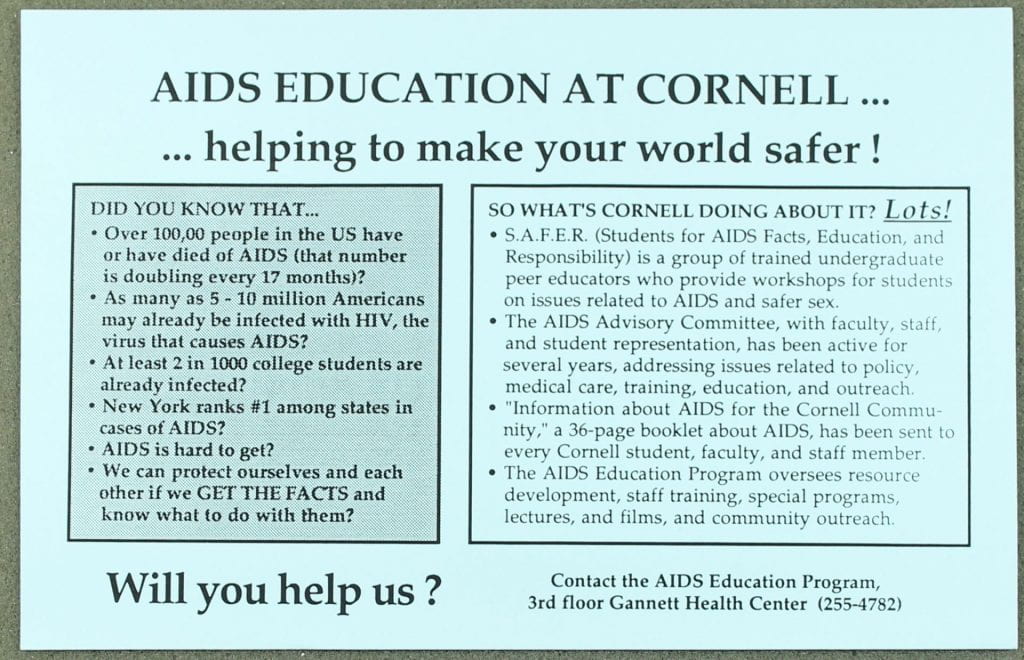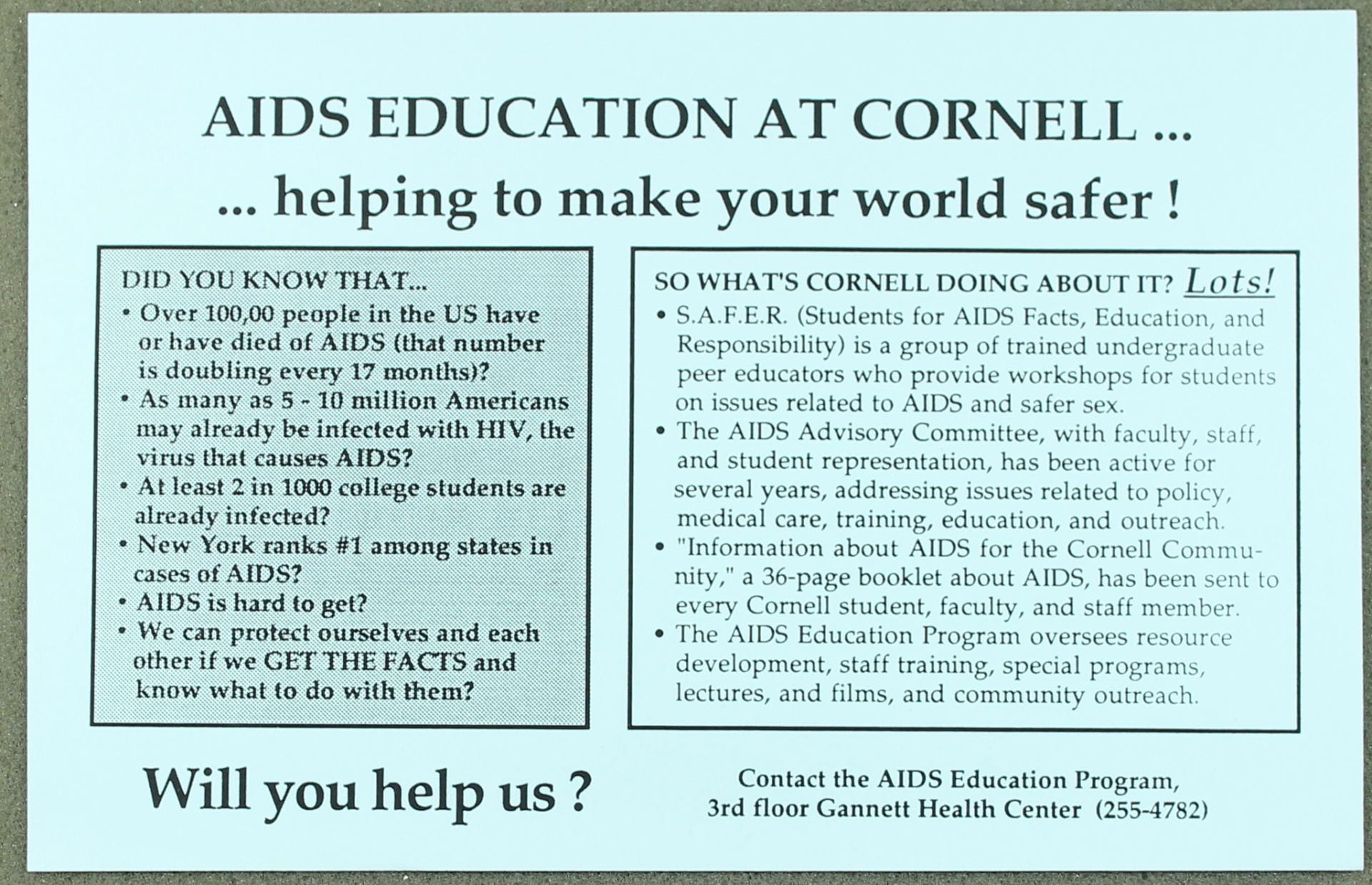by Alex Myers, Class of 2023, Philosophy and Psychology
The flyer below was created by the Cornell AIDS Education Program in the late 1980s. As one of many that were distributed across campus, it details some of the ways in which the program worked to achieve its goals of shaping university AIDS policy and providing education about AIDS and safe sex to students. Both informational and a call to action, this flyer presents statistics on AIDS in the United States and New York State and gives information about AIDS education organizations on campus, such as SAFER, also known as the Students for AIDS Facts, Education, and Responsibility. SAFER, as the student run and focused arm of the AIDS Education Program, organized a wide variety of events aimed at engaging Cornell undergraduates, from candlelight vigils to in-class workshops and Sexual Jeopardy (a parody of the show Jeopardy!). These events, in conjunction with materials distributed by staff at Cornell Health and the administration-focused activities of the AIDS Advisory Committee, a group made up of students, faculty, and staff, formed the bulk of AIDS education at Cornell in the late 1980s and early 1990s.

Prior to the formation of the AIDS Education Program, Cornell Health held only sporadic education events primarily aimed at dispelling common myths about AIDS. Many students involved with gay organizations on campus, such as George Ayala, felt like these events were not enough and demanded an expansion of education efforts along with a more intersectional approach to combatting rising homophobia. As a result of this pressure, AIDS Action at Cornell, the parent initiative for the AIDS Education Program, was born. Initially AIDS Action was directed and run solely by newly hired staff at Cornell Health, but before long students, faculty, and staff from across the university got involved, holding educational workshops, distributing materials related to safe sex, and shaping university AIDS policy. This renewed institutional focus on outreach and education continued throughout the 1990s, supported by robust student groups like SAFER, and was instrumental in the fight against AIDS at Cornell.
Sources:
Chris Swingle, “Aids vigil planned on The Commons,” Ithaca Journal, 30 November 1990.
Akil Salim Roper, “Avoiding ‘Sexual Jeopardy’ is contest’s real goal,” Cornell Chronicle, 22 February 1996.
“Start Thinking AIDS Prevention,” The Cornell Daily Sun, 14 November 1985.
George Ayala, “Making AIDS a Priority,” The Cornell Daily Sun, 5 May 1986.
